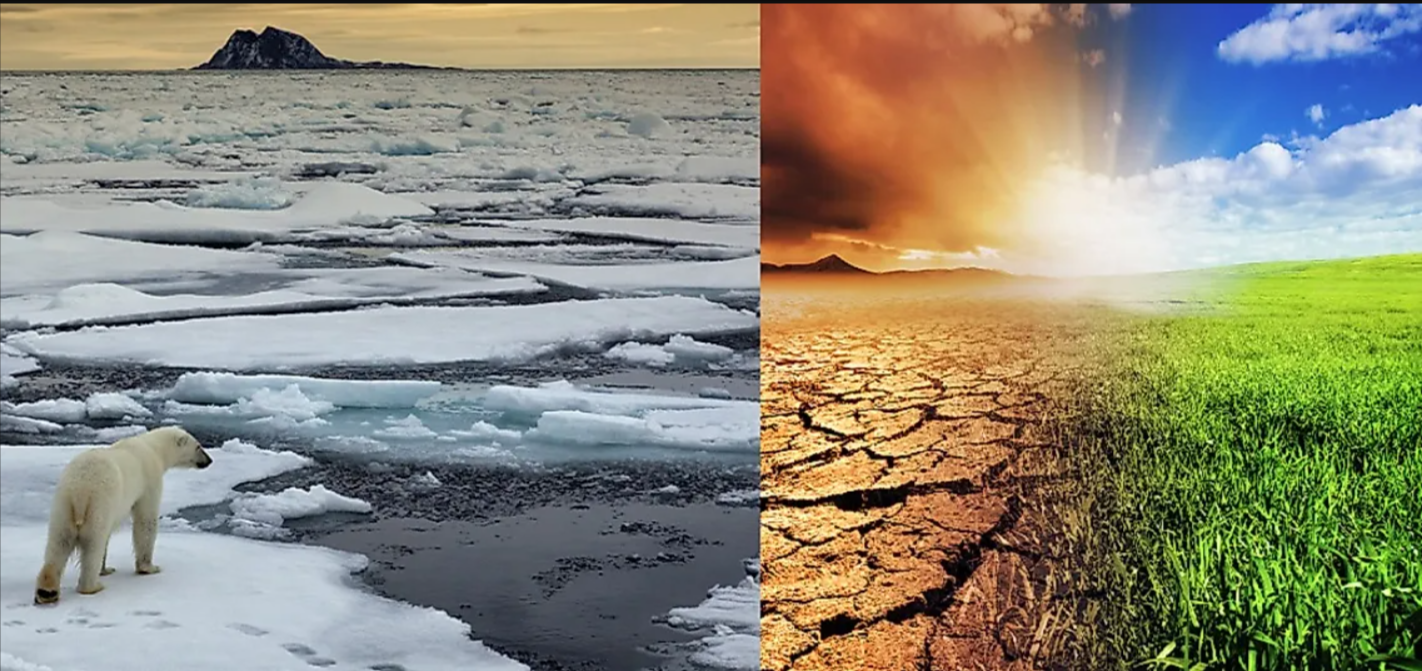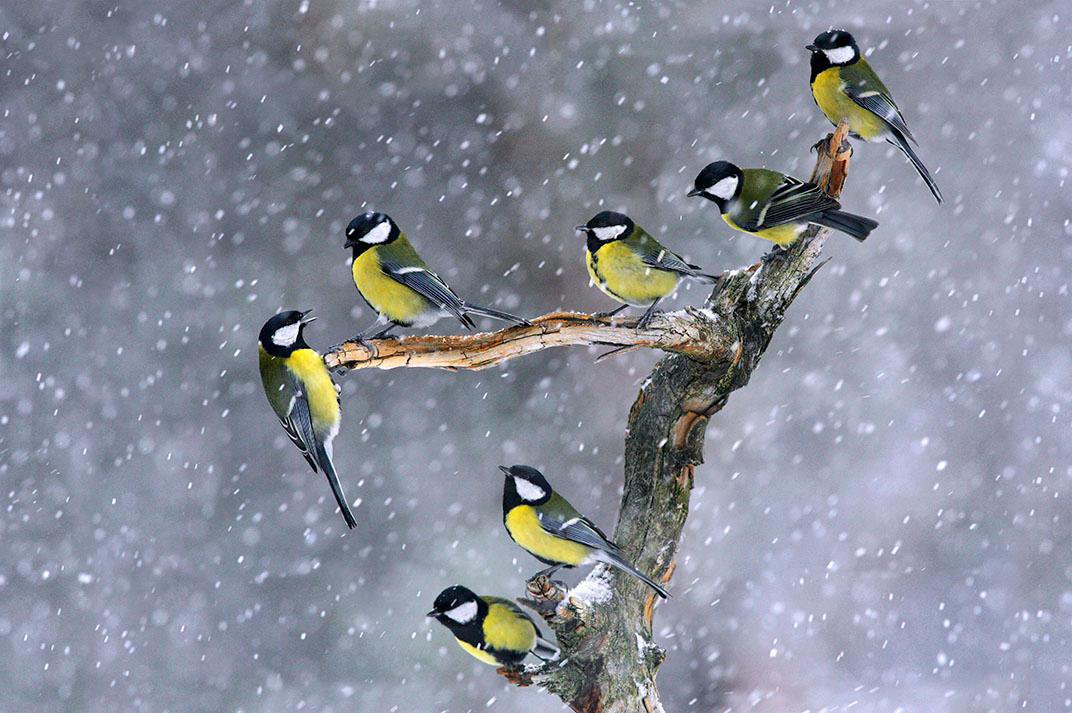Climate change denial is like trying to ignore a giant elephant in the room. No matter how much you try to pretend it isn’t there, it’s still going to be there, taking up space and causing all sorts of problems.
Take the heatwaves, for example. Some might try to say that they’re just a normal part of the weather cycle, but the fact is that they’re becoming more frequent and more intense as the planet gets warmer. And yet, despite the overwhelming scientific evidence, there are still people out there who refuse to acknowledge that climate change is happening.
But hey, if ignoring the problem makes you feel better, go ahead! Just don’t be surprised when you find yourself sweltering in a record-breaking heatwave, or when your city is underwater because of rising sea levels.
And let’s not forget about the economic impacts of climate change. Some others might try to argue that taking action to reduce greenhouse gas emissions would be too expensive, but the fact is that the longer we wait, the more it will cost us in the long run.
So let’s all just close our eyes, stick our heads in the sand, and pretend that climate change isn’t happening. What could go wrong?
Oh wait, everything. Maybe it’s time to start facing the facts and taking action before it’s too late.
The planet is melting!

Climate change is one of the greatest threats facing the planet and its ecosystems today. As the Earth’s average temperature continues to rise, the impacts on the environment and wildlife are becoming increasingly severe and widespread.

One of the most dramatic effects of climate change is the loss of biodiversity. As the climate changes, species are struggling to adapt to new conditions and many are struggling to survive. For example, as the Earth warms, many species are being forced to migrate to new, cooler areas. However, as they move, they may encounter new predators or competition for resources, which can further threaten their survival.

In addition to the loss of individual species, climate change is also causing major shifts in entire ecosystems. As the climate changes, the relationships between species and their environments are also changing. This can lead to the breakdown of entire food webs and the disruption of vital ecological processes.

One example of this is the bleaching of coral reefs. Coral reefs are home to a staggering variety of marine life and provide vital ecosystem services, such as coastal protection and nutrient cycling. However, as the Earth warms, coral reefs are experiencing bleaching events, where the coral expels the algae that give it its color and provide it with energy. Without the algae, the coral is left vulnerable and can eventually die. This affects not only the coral but also the countless species that rely on the coral for food and habitat.

Climate change is also having a major impact on wildlife populations. Many species are struggling to adapt to new conditions, and some are being pushed to the brink of extinction. For example, as the Earth warms, many species are seeing their ranges shift, which can bring them into conflict with humans or expose them to new predators.

Climate change is also causing more frequent and severe weather events, such as hurricanes, droughts, and wildfires. These events can have devastating impacts on wildlife, destroying habitats and killing off entire populations.

Alarming facts and figures when it comes to the impacts of climate change on ecosystems and wildlife.
- The Earth’s average temperature has risen by about 1.2 degrees Celsius since the beginning of the Industrial Revolution. This may not seem like a lot, but it has already had significant impacts on the planet and its inhabitants.
- The Intergovernmental Panel on Climate Change (IPCC) estimates that around 20 to 30% of plant and animal species could face extinction if global warming exceeds 1.5 degrees Celsius.
- Coral reefs, which provide vital habitat for a staggering variety of marine life, are at risk of being completely lost if the Earth warms by more than 2 degrees Celsius.
- Warmer water temperatures are causing the polar ice caps to melt, which is having a number of negative impacts on polar ecosystems. For example, the Arctic sea ice cover has declined by about 13% per decade since the 1970s, and the Antarctic sea ice cover has declined by about 3% per decade.
- The oceans are becoming more acidic as a result of climate change, which is having a number of negative impacts on marine life. For example, acidification is causing some species to struggle to form shells and skeletons, which can threaten their survival.
- The World Wildlife Fund (WWF) estimates that climate change could cause the extinction of up to one-third of the world’s species by the end of the century.
These are just a few examples of the many alarming facts and figures regarding the impacts of climate change on ecosystems and wildlife. It is clear that urgent action is needed to address this global crisis. It is imperative to reduce our greenhouse gas emissions and slow the pace of climate change to protect the oceans and the countless species that call them home.
How We Can Confront the Climate Change Challenge
Climate change is a complex and pressing global challenge, and it is the result of human activities that have increased levels of greenhouse gases in the atmosphere, leading to a rise in global temperatures and a range of impacts such as more frequent and severe heatwaves, droughts, and storms, as well as rising sea levels and more acidic oceans.
To effectively confront the climate change challenge, individuals must take responsibility to take action on climate change. Our daily choices and behaviors can significantly impact the environment, and by making conscious decisions to reduce our carbon footprint, we can play a role in addressing the climate change challenge.
There are many ways that individuals can take action to address climate change, including:
- Reduce energy consumption by using energy-efficient appliances, turning off lights and electronics when not in use, and using public transportation or driving a fuel-efficient vehicle.
- Support clean energy by using renewable energy sources like solar or wind power, or by investing in companies that support clean energy development.
- Consume sustainably by choosing products that have minimal environmental impacts, supporting local and sustainable agriculture, and reducing waste.
- Get involved in your community by advocating for climate action, supporting organizations working on climate issues, and participating in local efforts to reduce greenhouse gas emissions.
Governments also have a critical role to play in addressing climate change. They can implement policies and regulations to reduce greenhouse gas emissions, invest in clean energy and infrastructure, and provide support for communities and individuals to adapt to the impacts of climate change.
Ultimately, addressing the climate change challenge will require collective action and a commitment to making the necessary changes at all levels of society.
